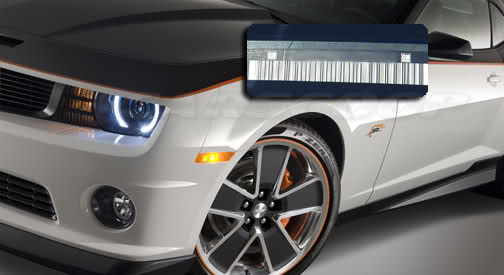There’s been a lot of talk lately about supporting the domestic (U.S.) manufacturers especially after the current crisis that saw Chrysler filing for bankruptcy and GM axing a bunch of brands including Pontiac, Hummer and Saturn. Everyone has their own opinion on this issue, but if your number one criteria for buying a car is whether or not it’s made in the U.S.A., or whichever country you reside in for that matter, then you ought to check the vehicle’s 17-digit-long Vehicle Identification Number (VIN) code that was standardized by SAE in 1981.
In particular, the very first digit of the VIN determines the geographical region the car is built in, regardless of where the manufacturer is headquartered. But while a #1, #4 and #5 should mean that the car was built in the USA, Kelley Blue Book’s Classic Car Guide Editor, Phil Skinner, told the LA Times that only the #1 represents the USA, with the #4 and #5 usually meaning the car was made in another country.
Confused? So are we. If it’s not made in the U.S., then why does it say so? Well, even though we spent a good three hours on the net searching to find what is the difference between #1 and #4 (or 4A-40) and 5# (or 5A-50), unfortunately we came up empty handed. If any of you happen to know the answer, please leave a comment below.
Via: NASIOC , Source: LA Times
VIN Code Country of Origin
- 1: UNITED STATES
- 2: CANADA
- 3: MEXICO
- 4: UNITED STATES
- 5: UNITED STATES
- 6: AUSTRALIA
- 9: BRAZIL
- J: JAPAN
- K: KOREA
- L: CHINA , TAIWAN
- M: THAILAND
- S: UNITED KINGDOM
- T: HUNGARY
- V: FRANCE
- W: GERMANY
- X: RUSSIAN FEDERATION
- Y: FINLAND, SWEDEN
- Z: ITALY



